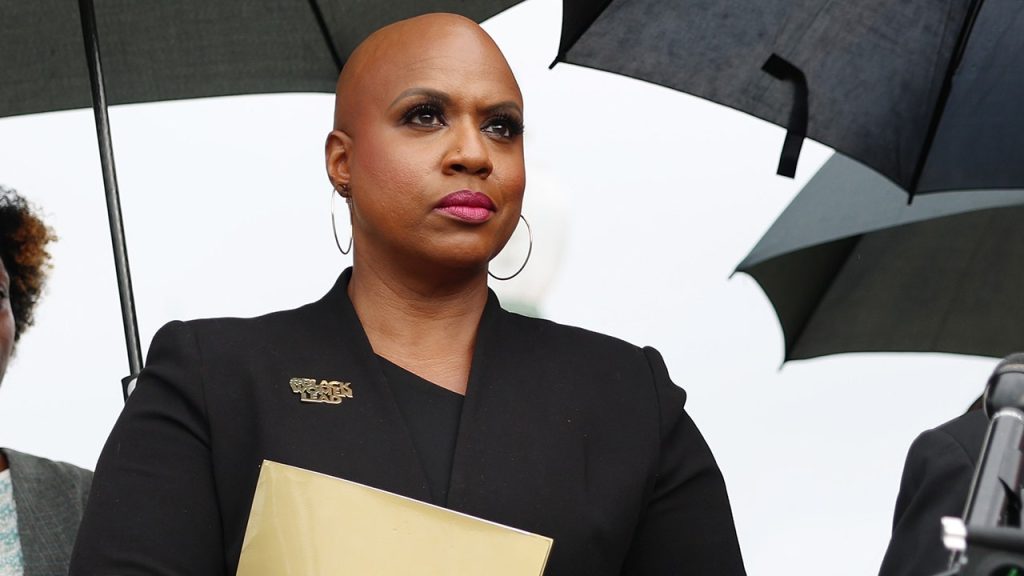A Different Thanksgiving Reflection: Perspectives from Progressive Lawmakers
In the midst of Thanksgiving celebrations across America, Representative Ayanna Pressley of Massachusetts offered a sobering counterpoint to the traditional holiday narratives. The Democratic congresswoman, known as a member of the progressive “Squad” in the House of Representatives, turned attention to those who experienced empty seats at their tables for reasons beyond voluntary absence. “This Thanksgiving, I’m thinking of our neighbors with an empty seat at the dinner table,” Pressley wrote on social media. Her message specifically highlighted families separated due to deportations, gun violence, and mass incarceration—issues that disproportionately affect marginalized communities. Rather than simply acknowledging these absences, Pressley framed them as motivation, adding that “a more just America is possible, if we fight for it,” connecting the holiday to broader social justice conversations.
This perspective comes during a time of intensified immigration enforcement under the Trump administration, which has implemented stricter policies on undocumented immigrants. While traditional Thanksgiving messaging often focuses on gratitude and abundance, these comments represent a growing trend among progressive lawmakers to acknowledge the complicated historical and contemporary realities that many Americans face during celebrations. Pressley’s comments reflect the “Squad” members’ consistent use of their platforms to highlight systemic issues affecting vulnerable populations, particularly at moments when national attention might otherwise overlook these realities.
Representative Summer Lee of Pennsylvania, another member of the progressive “Squad,” offered similar reflections on the holiday. Lee acknowledged that while Thanksgiving represents “gratitude and community for many,” it simultaneously serves as “a reminder of stolen land and broken treaties for others.” Her dual framing attempted to bridge the traditional celebration with recognition of historical trauma experienced by Indigenous peoples. Lee called on Americans to “honor Indigenous communities by committing to the fight for sovereignty, justice, and freedom,” suggesting that true thanksgiving might include both gratitude and reconciliation. This approach reflects an effort to expand the holiday’s meaning rather than simply reject its celebration.
The comments from both representatives highlight the ongoing tension between traditional holiday observances and growing awareness of America’s complex historical legacy. Pressley had previously made similar statements during Indigenous Peoples’ Day in October, directly stating, “We are all on stolen land.” She criticized what she described as Republican attempts to “whitewash American history” and called for acknowledgment of “our country’s role in inflicting trauma on our Indigenous neighbors.” This perspective represents a significant departure from conventional holiday messaging that typically focuses on unity and shared values without addressing historical injustices or ongoing inequalities.
These alternative Thanksgiving narratives from progressive lawmakers reflect broader cultural shifts in how Americans understand and commemorate national holidays. Rather than viewing these occasions through a singular lens of celebration, there’s growing recognition that holidays can serve as opportunities for national reflection on both progress and shortcomings. The representatives’ comments suggest that acknowledging pain and injustice doesn’t necessarily mean abandoning celebration entirely, but rather expanding the conversation to include multiple perspectives and experiences that make up the American story. Their approach attempts to make space for both gratitude and critical examination.
While these perspectives have drawn criticism from those who prefer more traditional holiday observances, they represent an important dimension of America’s evolving relationship with its history and identity. The tensions between celebration and critique, between gratitude and accountability, mirror larger national conversations about how to reconcile America’s founding ideals with its historical and ongoing challenges. As the country continues to become more diverse and historically conscious, holidays like Thanksgiving may increasingly serve as occasions not just for celebration but for nuanced reflection on what it means to build “a more just, equitable future,” as Pressley described it. These progressive voices suggest that true patriotism might include both appreciation for what America represents at its best and honest acknowledgment of where it still falls short.


